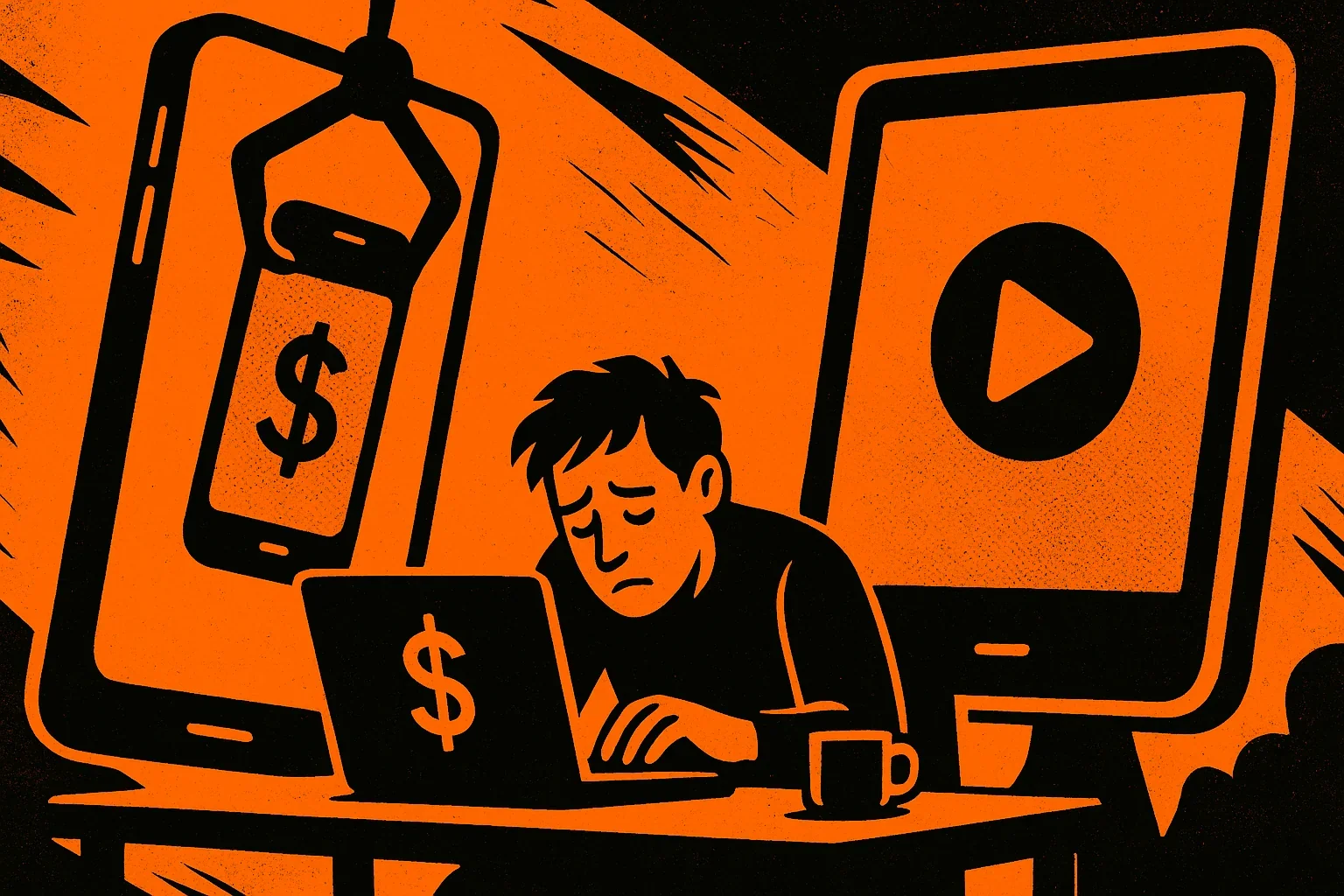The screen economy is no longer a free space as promoted by freelancing platforms, but a new system of psychological attrition masquerading as freedom. Online freelancers live an invisible struggle: constant financial anxiety, constant stress, stifling social isolation, and endless chasing of algorithms, clients, and digital reviews.
Statistics reveal that 28% of freelancers work seven days a week, 23% have no vacation time at all, and an average of 7.4 hours of unpaid overtime per week. It's not out of passion for the work, but out of fear of falling behind in platform algorithms or losing clients. The collapse of the boundaries between work and life has left freelancers living in a "perpetual contact vortex" where notifications turn into psychological constraints that prevent them from turning off for a moment.
Studies have shown that 32% of freelancers feel stressed at the thought of taking a vacation, and 45% of them reported deteriorating mental health in just one year. Instead of separating work time from rest, work has crept into every moment of the day, even bedtime. Nightly notifications lead to an average of 48 minutes of lost sleep per day, leading to poor concentration and chronic fatigue.
The pressure doesn't stop there. Professional independence also means deadly multitasking: a freelancer is not just an employee, but an entire team working alone-manager, marketer, accountant, technical support team. Research shows that this frequent multitasking increases brain fatigue, reduces productivity by 40%, and increases the likelihood of emotional exhaustion.
Studies have shown that 45% of freelancers experience severe financial stress, and 80% are unable to cover an emergency expense of $1,000. Professional isolation makes matters worse, with 72% of freelancers experiencing loneliness according to a recent survey in 2024 - a figure that has been described as a "loneliness epidemic."
Bottom line:
Professional independence is not an issue in and of itself, it's the current economic environment that overloads the individual. If this trend continues, we're looking at a generation that burns out in front of screens under the slogan "work more to stay afloat."
To view the video and read the full analysis, please scroll down.
The exhausting screen economy: Why has professional independence become a recipe for burnout?
We're not free in the platform economy... we're just working without protection.

Comments